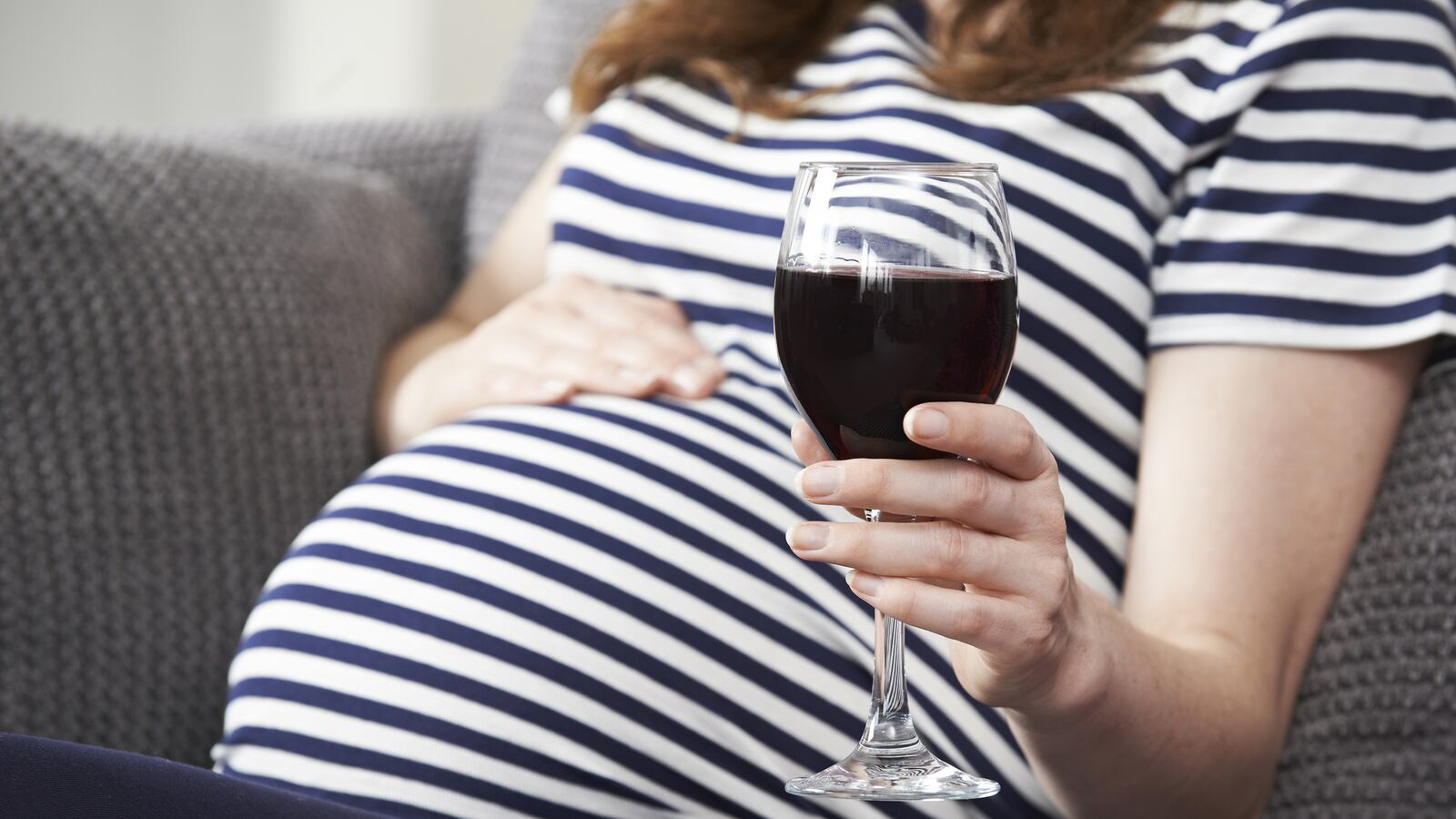Pregnant ladies of NYC unite! The New York Commission on Human Rights deemed it illegal for bars and restaurants to deny pregnant women alcohol, raw fish, soft cheese, or anything else they’d serve another patron (PDF).
The Commission is less concerned about soon-to-be mothers craving a glass of Chardonnay and a spicy tuna roll and more concerned about policies singling out pregnant individuals; meanwhile, at least 18 states across the U.S. have laws stating substance abuse during pregnancy is child abuse, according to a 2016 brief by the Guttmacher Institute (PDF).
The same brief also notes that Minnesota, South Dakota, and Wisconsin consider substance abuse during pregnancy grounds for civil commitment, and Tennessee Governor Bill Haslam signed a bill authorizing the arrest and incarceration of women who use drugs—including alcohol—while pregnant.
While the Centers for Disease Control and Prevention (CDC) discourages pregnant women from consuming a number of things including any raw or unpasteurized foods (like sushi or soft cheese), eggs that are undercooked (found in homemade ice cream, cookie dough, and mayonnaise), and meat that is not well-done, alcohol has been the center of attention of numerous debates discussing whether expecting mothers should consume it at all. This debate extends to whether a waiter or bartender should have the jurisdiction over that decision.
In 1991, two Seattle waitresses were fired for trying “to persuade a pregnant customer not to order a rum daiquiri because drinking alcohol could harm her fetus,” The New York Times reported.
When it comes to what pregnant women are told they should and should not eat, “it seems to be a culturally specific set of taboos rather than an objective set of rules,” said Emily Martin, vice president for workplace justice at the National Women’s Law Center. In Europe they think pregnant women shouldn’t eat salad, something people in the U.S. might find surprising, she added.
The guidelines are about much more than just giving mothers freedom of choice when it comes to what they put in their bodies. It primarily confronts the discrimination pregnant women face day-to-day in public and in the workplace. In 2015, 3,500 charges related to pregnancy discrimination were filed with the Equal Employment Opportunity Commission, Martin said.
“Pregnant employees should never be penalized for wanting to start or expand their family and should never have their health or safety put at risk in the workplace,” Mayor Bill de Blasio said in a statement. “Pregnant employees deserve safe work environments and the same opportunities to grow and thrive in their careers.”
The law prohibits gender-based harassment related to pregnancy, including making comments about a pregnant individual’s weight or appearance. More specific violations include landlords who refuse to accept housing applications from pregnant women based in part on their pregnancy, or an employer who refuses to hire someone otherwise qualified because they’re pregnant.
“There has been a lot of progress at the state level around the issue of pregnancy accommodations,” Martin said. “There continues to be a lot of movement around this issue and I think that the New York law is a very strong law and with the recent guidance saying what is required and what this law means, I think it really is a model for the country.”
Right now 17 states and Washington, D.C. have laws that explicitly provide at least some accommodations to pregnant employees.
The New York law also addresses actions rooted in stereotypes and assumptions regarding pregnant women, like refusing a pregnant woman a promotion based on the assumption that she will likely decide not to return to work after childbirth.
Employers are required to accommodate reasonable requests from employees like needing to leave for a doctor’s appointment or abstaining from lifting heavy equipment.
“Accommodation of pregnant women cannot be a favor,” said Azadeh Khalili, Executive Director of the Commission on Gender Equity, in a statement. “It is a human right and the law in New York City.”
In a report (PDF) by the National Women’s Law Center and A Better Balance, Guadalupe Hernandez tells her story:
“One day I asked my boss for permission to leave early to go to a prenatal doctor’s appointment later that week. Before I got pregnant, if there was a day I had to leave early or go to a doctor’s appointment, I was always able to work it out with my boss, even if I told him about it the same day. This time when I asked, my boss never got back to me. On the morning of the appointment, I reminded my coworkers that I’d be leaving early for my appointment. My boss overheard this and threatened to fire me if I left.”
Hernandez, who prepared and served food at a Mexican fast food restaurant, was later fired, told she was “not giving 100 percent.”
A statement regarding the NYHRC law released by the Office of the Mayor cites a 2008 study (PDF) by Renee Bischoff and Wendy Chavkin, showing that pregnant women who are denied accommodations can suffer from pregnancy complications such as preterm birth, low birth weight, pregnancy-induced hypertension and preeclampsia, miscarriage, and congenital anomalies.
“A couple stories out of New York involved retail workers whose employers refused to allow them to take a break or sit at a counter instead of standing at a counter and these are especially compelling because we are talking about a stool,” Martin said. “It is not a heavy burden on the employer and yet these employers are saying no.”






